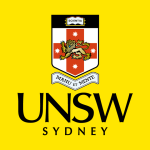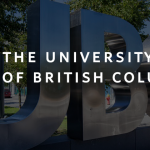Popular Topics
- AI/ML
- All About Universities
- Australia
- Canada
- Data Science / Analytics
- Denmark
- Dubai
- Environmental / Sustainability
- Finland
- France
- Germany
- Ireland
- Latest News
- Malaysia
- MBA/ Business
- Middle East
- New Zealand
- Poland
- Post Study & PR
- Program Selection
- Qatar
- Saudi Arabia
- Scholarships
- Spain
- STEM / Engineering
- Student Visa
- Study Destination
- Study Options By Subject
- Sweden
- Tests & Grades
- Thailand
- The Netherlands
- Travel, Stay, Culture Training
- UAE
- UK
- USA
How To Get Into The University Of Melbourne (UniMelb)
- April 23, 2025
- 7 minutes

Why Choose the University of Melbourne?
The University of Melbourne is a member of the Group of Eight (Go8), a coalition of Australia’s most research-intensive universities. It is renowned for its academic excellence, innovative research, and vibrant campus life.
Here’s why thousands of students choose the University of Melbourne every year:
| Feature | Details |
|---|---|
| Global Ranking | 13th worldwide (QS 2025) |
| Student Population | 53,963 students (2023) |
| Campuses | Parkville (main), Southbank, Burnley, Dookie, Shepparton, Werribee, and Creswick |
| Group of Eight (Go8) | Member of Australia’s elite research-intensive universities |
| Graduate Employability | High employability outcomes with strong industry connections |
| Research Excellence | Leading in interdisciplinary research, particularly in clean energy, quantum computing, and healthcare |
Entry Requirements for International Students
The University of Melbourne welcomes students from all over the globe, but entry requirements can vary by country and course.
Undergraduate Programs
| Requirement | Details |
|---|---|
| Academic Qualification | 75–85% in Class XII (CBSE/ISC/State Boards) |
| English Proficiency | IELTS 6.5 / TOEFL 90 / PTE 62 |
| Subject Prerequisites | Required for STEM and select courses |
| Additional Tests | Some courses may require admissions tests or portfolios (e.g., Medicine, Architecture) |
Postgraduate Programs
| Requirement | Details |
|---|---|
| Academic Qualification | Bachelor’s with 60–70% (First Class) |
| English Proficiency | IELTS 6.5–7.0 / TOEFL 90–100 / PTE 62–68 |
| GRE/GMAT | Required for some business courses |
| Work Experience | Recommended for MBA and select programs |
Application Process
Here’s a detailed guide to help you navigate it smoothly:
| Step | Details |
|---|---|
| Research Courses | University of Melbourne Course Finder |
| Prepare Documents | Transcripts, SOP, LORs, English test scores, passport |
| Apply Online | Direct application via the University of Melbourne Application Portal |
| Pay Fees | Application fee: AUD $150 (non-refundable) |
| Interview | Some courses may require an interview |
| Offer Letter | Conditional or unconditional offer |
| Accept Offer | Pay deposit to secure your place |
| Apply for Visa | Australian student visa application |
Required Documents Checklist
| Document | Undergraduate | Postgraduate |
|---|---|---|
| Academic Transcripts | ✔️ | ✔️ |
| Statement of Purpose | ✔️ | ✔️ |
| Letters of Recommendation | 1–2 | 2–3 |
| English Test Scores | ✔️ | ✔️ |
| Passport Copy | ✔️ | ✔️ |
| CV/Resume | Optional | Often required |
| Portfolio (if applicable) | For some courses | For some courses |
You Might Also Like: How To Get Into The University Of New South Wales (UNSW)
Key Deadlines at the University of Melbourne
| Intake | Application Opens | Application Deadline |
|---|---|---|
| February | April (previous year) | November 30 (UG) |
| July | February (same year) | May 31 (UG) |
| February | Rolling (PG) | Varies by course |
| July | Rolling (PG) | Varies by course |
Important Dates for 2025 Entry
| Event | Date |
|---|---|
| Application Deadline (UG) | November 30, 2024 |
| PG Application Priority | March–May 2025 |
| Scholarship Deadlines | December 2024–March 2025 |
| CAS Issuance (for Visa) | June–July 2025 |
| Course Start (Main Intake) | February 2025 |
Popular Courses at the University of Melbourne
The University of Melbourne offers a wide range of programs across disciplines. Here are some of the most sought-after courses for international students:
| Course | Duration | Annual Tuition Fee (AUD) |
|---|---|---|
| MSc Data Analytics | 1 year | 47,000 |
| MBA | 1 year | 55,000 |
| BSc Computer Science | 3 years | 42,000 |
| LLM Human Rights Law | 1 year | 38,000 |
| BEng Mechanical Engineering | 3 years | 45,000 |
| MSc Cyber Security | 1 year | 50,000 |
| BA Business Management | 3 years | 40,000 |
Scholarships for International Students
| Scholarship Name | Amount (AUD) | Eligibility Criteria |
|---|---|---|
| Melbourne International Undergraduate Scholarship | 25% fee remission | High-achieving students from countries with financial disadvantage |
| Science Graduate Scholarship (International) | Up to $10,000 | High-achieving international students in graduate coursework degrees |
| Melbourne Graduate Research Scholarships | Full tuition + stipend | Research-focused postgraduate students |
| Melbourne International Fee Remission Scholarship | Full tuition fee remission | High-achieving international students |
Student Life & Support at the University of Melbourne
Life at the University of Melbourne is dynamic, inclusive, and supportive. Here’s what you can expect:
| Feature | Details |
|---|---|
| Accommodation | Offers both independent apartment-style living and residential colleges with catered meals. All accommodations include utilities, amenities like gyms and study rooms, and 24/7 staff and wellbeing support. |
| Part-Time Work | International students can work up to 40 hours per fortnight during the semester and unlimited hours during breaks, in line with Australian visa regulations. |
| Student Societies | Over 200 clubs and 100 graduate groups, ranging from cultural, spiritual, and musical to political and special interests. Students can also volunteer in leadership roles or start their own clubs. |
| Career Services | Provides internships, placements, job fairs, CV workshops, and career advice. The Melbourne Plus program offers co-curricular opportunities that develop skills and networks, with official recognition. |
| Health & Wellbeing | Offers a range of services including medical and counselling appointments, mindfulness classes, and 24/7 mental health crisis support. The SafeZone app provides emergency assistance and wellbeing support. |
| International Student Support | Provides guidance on visas, OSHC, and transitioning to life in Melbourne. The Melbourne Peer Mentor Program and various cultural clubs help international students integrate and build networks. |
Need Personalized Help?
With careful planning, a strong application, and the right support from Admitix, you can unlock your dream of studying at University Of Melbourne.
Start today!
FAQs – University Of Melbourne
1. Is it harder to get into UniMelb?
Yes, entry is competitive; for Indian students, a minimum of 96% in AISSC/ISC or equivalent is often required.
2. Are UniMelb programs only for research students?
No, UniMelb offers both undergraduate and taught master’s programs across various disciplines.
3. Is UniMelb the same as the Ivy League or Russell Group?
No, UniMelb is Australia’s leading university, known for academic excellence and research innovation.
4. Does UniMelb offer scholarships for Indian students?
Yes, including the Melbourne International Undergraduate Scholarship, which provides a 25% fee remission.
5. Can I transfer to UniMelb mid-degree?
Yes, transfers are possible; eligibility depends on course compatibility and available seats.



